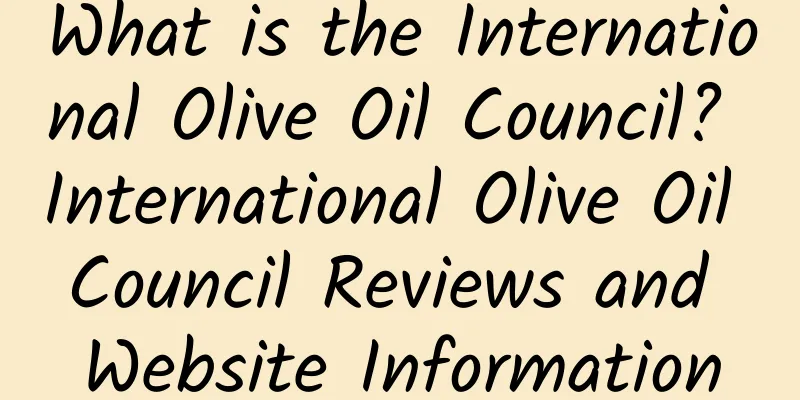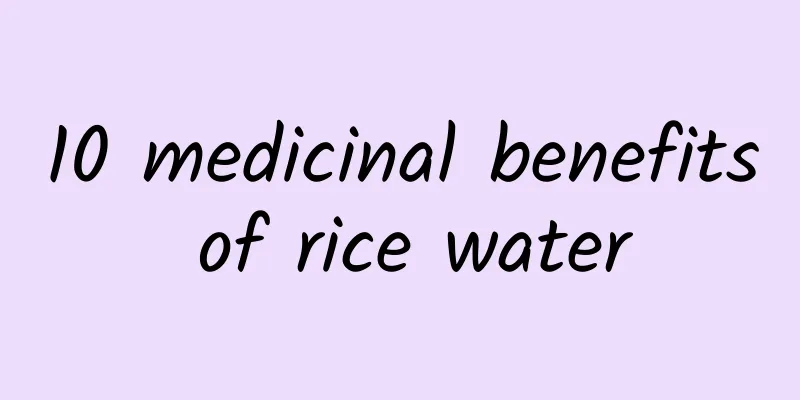What is the International Olive Oil Council? International Olive Oil Council Reviews and Website Information

|
What is the website of the International Olive Oil Council? The International Olive Oil Council (IOOC) is the executive and management body of the International Olive Oil Agreement. Its headquarters is located in Madrid, Spain. It aims to manage the global olive oil market, formulate olive oil product standards, implement technical cooperation, conduct biological research, and promote and popularize olive oil knowledge. The organization consists of a board of directors, a special committee, an international arbitration committee, and an executive secretariat. Website: www.internationaloliveoil.org The International Olive Oil Council (IOOC) is a global organization dedicated to managing and promoting the healthy development of the olive oil market. As the executive and administrative body of the International Olive Oil Agreement, IOOC plays a vital role in the olive oil industry. Its headquarters is located in Madrid, Spain, a geographical location that not only reflects the importance of Spain in global olive oil production, but also provides an ideal base for IOOC to better coordinate the operation of the global olive oil market. The mission of IOOC is to ensure the stability and sustainability of the olive oil market, while promoting the standardization and technological innovation of olive oil products. In order to achieve this goal, IOOC has established a number of subordinate institutions, including the Council, Special Committees, International Arbitration Committee and Executive Secretariat. These institutions work together to ensure that the policies and measures of IOOC can be effectively implemented and implemented. History and Background of IOOCThe establishment of the International Olive Oil Council can be traced back to the mid-20th century. As the global demand for olive oil continued to grow, governments and related industries realized the need for an international organization to coordinate and manage the olive oil market. In 1959, the International Olive Oil Agreement was signed under the auspices of the United Nations, and IOOC came into being as the executive body of the agreement. Since its inception, IOOC has been committed to promoting the development of the olive oil industry. By developing and enforcing international standards, IOOC ensures the quality and safety of olive oil products, while also promoting fair competition in the global olive oil trade. Over time, IOOC's responsibilities and influence have continued to expand, and today it has become a core institution in the global olive oil industry. Functions and Responsibilities of the IOOCThe main functions of IOOC include managing the global olive oil market, setting olive oil product standards, implementing technical cooperation, conducting biological research and promoting and popularizing olive oil knowledge. These functions cover all aspects of the olive oil industry, from production to sales, from technology research and development to market promotion. In managing the global olive oil market, IOOC ensures market stability and sustainability by monitoring market dynamics, analyzing supply and demand, and formulating pricing policies. In addition, IOOC helps countries improve the production efficiency and quality of olive oil through international cooperation and technical exchanges. In terms of setting olive oil product standards, IOOC has developed a series of international standards covering olive oil classification, quality requirements, testing methods, etc. These standards not only provide a reliable reference for consumers, but also provide clear quality requirements for producers and exporters, thus promoting the healthy development of global olive oil trade. In terms of technical cooperation and biological research, IOOC promotes technological innovation and sustainable development in the olive oil industry by funding scientific research projects, organizing technical training, and promoting advanced technologies. In addition, IOOC also promotes the growth of olive oil consumption by popularizing olive oil knowledge and raising public awareness of the health benefits of olive oil. IOOC Organizational StructureThe organizational structure of IOOC includes the Board of Directors, Special Committees, International Arbitration Committee and Executive Secretariat. These institutions perform their respective duties and work together to ensure that the policies and measures of IOOC can be effectively implemented and implemented. The Council is the highest decision-making body of the IOOC, composed of representatives of each member country. The Council is responsible for formulating the policies and strategies of the IOOC, and reviewing and approving various resolutions and reports. Special committees are responsible for dealing with specific issues or projects, such as technical cooperation, market management, standard setting, etc. The International Arbitration Committee is responsible for resolving disputes and disputes between member countries and ensuring that the various regulations and agreements of the IOOC are implemented fairly. The Executive Secretariat is the daily management body of the IOOC, responsible for coordinating and supervising the implementation of various tasks. IOOC Members and PartnersIOOC members include major olive oil producing and consuming countries in the world. These member countries jointly promote the development of the olive oil industry by participating in various IOOC activities. In addition, IOOC has established cooperative relations with a number of international organizations and institutions, such as the Food and Agriculture Organization of the United Nations (FAO) and the World Trade Organization (WTO). These cooperative relations not only enhance the influence of IOOC, but also provide more opportunities and resources for international cooperation in the olive oil industry. IOOC's achievements and influenceSince its establishment, IOOC has made remarkable achievements in promoting the development of the olive oil industry. By formulating and implementing international standards, IOOC ensures the quality and safety of olive oil products, while also promoting fair competition in the global olive oil trade. In addition, IOOC promotes technological innovation and sustainable development of the olive oil industry through technical cooperation and biological research. The impact of IOOC is not limited to the olive oil industry, but also extends to the global food and agricultural fields. By promoting and popularizing olive oil knowledge, IOOC has increased public awareness of the health benefits of olive oil, thereby promoting the growth of olive oil consumption. In addition, through international cooperation and technical exchanges, IOOC helps countries improve the production efficiency and quality of olive oil, thereby promoting the sustainable development of global agriculture. Future Outlook for IOOCLooking ahead, IOOC will continue to be committed to promoting the healthy development of the olive oil industry. As global demand for olive oil continues to grow, IOOC will face more challenges and opportunities. In order to meet these challenges, IOOC will continue to strengthen cooperation with international organizations and institutions to promote technological innovation and sustainable development of the olive oil industry. In addition, the IOOC will continue to promote the growth of olive oil consumption by popularizing olive oil knowledge and raising public awareness of the health benefits of olive oil. By setting and enforcing international standards, the IOOC will continue to ensure the quality and safety of olive oil products while promoting fair competition in the global olive oil trade. In short, as the core organization of the global olive oil industry, the International Olive Oil Council will continue to play an important role in promoting the healthy development of the olive oil industry. Through international cooperation and technological innovation, IOOC will make greater contributions to the sustainable development of the global olive oil industry. The global impact of the IOOCThe global influence of IOOC is not only reflected in the olive oil industry, but also extends to the global food and agricultural fields. By promoting and popularizing olive oil knowledge, IOOC has increased public awareness of the health benefits of olive oil, thereby promoting the growth of olive oil consumption. In addition, through international cooperation and technical exchanges, IOOC helps countries improve the production efficiency and quality of olive oil, thereby promoting the sustainable development of global agriculture. The global influence of IOOC is also reflected in its contribution to global food safety. By formulating and implementing international standards, IOOC ensures the quality and safety of olive oil products, thereby providing safe and reliable food for consumers around the world. In addition, IOOC promotes technological innovation in the olive oil industry through technical cooperation and biological research, thereby providing technical support for the sustainable development of global agriculture. Technological innovation at IOOCIOOC's efforts in technological innovation have not only promoted the development of the olive oil industry, but also provided technical support for the sustainable development of global agriculture. By funding scientific research projects, organizing technical training, and promoting advanced technologies, IOOC has promoted technological innovation and sustainable development in the olive oil industry. In addition, IOOC has promoted technological innovation in the olive oil industry through technical cooperation and biological research. By funding scientific research projects, IOOC has supported a number of studies on olive oil production and processing technology, thereby improving the production efficiency and quality of olive oil. By organizing technical training, IOOC has helped countries improve the technical level of olive oil production, thereby promoting technological progress in the global olive oil industry. IOOC Market ManagementThe IOOC plays an important role in managing the global olive oil market. By monitoring market dynamics, analyzing supply and demand, and formulating pricing policies, the IOOC ensures the stability and sustainability of the market. In addition, the IOOC helps countries improve the production efficiency and quality of olive oil through international cooperation and technical exchanges. IOOC's market management not only ensures the stability of the olive oil market, but also promotes fair competition in the global olive oil trade. By formulating and implementing international standards, IOOC ensures the quality and safety of olive oil products, thereby providing safe and reliable food for global consumers. In addition, IOOC promotes technological innovation in the olive oil industry through technical cooperation and biological research, thereby providing technical support for the sustainable development of global agriculture. IOOC's International CooperationThe cooperation between IOOC and international organizations and institutions not only enhances its influence, but also provides more opportunities and resources for international cooperation in the olive oil industry. Through cooperation with international organizations such as the Food and Agriculture Organization of the United Nations (FAO) and the World Trade Organization (WTO), IOOC promotes international cooperation and technical exchanges in the olive oil industry. In addition, IOOC also promotes the sustainable development of the olive oil industry through cooperation with other international organizations and institutions. Through technical cooperation and biological research, IOOC provides technical support for the sustainable development of global agriculture. By promoting and popularizing olive oil knowledge, IOOC increases public awareness of the health benefits of olive oil, thereby promoting the growth of olive oil consumption. IOOC Standard SettingIOOC plays an important role in setting standards for olive oil products. By developing and enforcing international standards, IOOC ensures the quality and safety of olive oil products, thereby providing safe and reliable food for consumers around the world. In addition, IOOC promotes fair competition in the global olive oil trade through standard setting. The IOOC standard setting not only covers the classification, quality requirements, and testing methods of olive oil, but also provides clear quality requirements for producers and exporters, thereby promoting the healthy development of global olive oil trade. By formulating and implementing international standards, the IOOC ensures the quality and safety of olive oil products, thereby providing safe and reliable food for consumers around the world. IOOC Promotion and PopularizationIOOC promotes the growth of olive oil consumption by promoting and popularizing knowledge about olive oil and raising public awareness of the health benefits of olive oil. By organizing various publicity and promotion activities, IOOC conveys the health benefits and nutritional value of olive oil to the public, thereby increasing public awareness and acceptance of olive oil. In addition, IOOC has promoted the sustainable development of the olive oil industry by promoting and popularizing knowledge about olive oil. By conveying the health benefits and nutritional value of olive oil to the public, IOOC has increased public awareness and acceptance of olive oil, thereby promoting the growth of olive oil consumption. By promoting and popularizing knowledge about olive oil, IOOC has contributed to the sustainable development of the global olive oil industry. Biological research at IOOCIOOC's efforts in biological research have not only promoted the development of the olive oil industry, but also provided technical support for the sustainable development of global agriculture. By funding scientific research projects, organizing technical training, and promoting advanced technologies, IOOC has promoted technological innovation and sustainable development in the olive oil industry. In addition, IOOC has promoted technological innovation in the olive oil industry through biological research. By funding scientific research projects, IOOC has supported a number of studies on olive oil production and processing technology, thereby improving the production efficiency and quality of olive oil. By organizing technical training, IOOC has helped countries improve the technical level of olive oil production, thereby promoting technological progress in the global olive oil industry. Technical cooperation with IOOCThrough technical cooperation, IOOC has promoted technological innovation and sustainable development in the olive oil industry. By funding scientific research projects, organizing technical training, and promoting advanced technologies, IOOC has provided support for technological progress in the global olive oil industry. In addition, IOOC has promoted the sustainable development of the olive oil industry through technical cooperation. By funding scientific research projects, IOOC has supported a number of studies on olive oil production and processing technology, thereby improving the production efficiency and quality of olive oil. By organizing technical training, IOOC has helped countries improve the technical level of olive oil production, thereby promoting technological progress in the global olive oil industry. International Arbitration before the IOOCThe International Arbitration Committee of IOOC is responsible for resolving disputes and conflicts between member states and ensuring the fair implementation of IOOC's regulations and agreements. Through international arbitration, IOOC ensures fair competition and sustainable development in the olive oil market. In addition, the IOOC's International Arbitration Committee also provides a fair and transparent dispute resolution mechanism for member states. Through international arbitration, the IOOC ensures that disputes and conflicts between member states can be fairly resolved, thereby maintaining the stability and sustainability of the olive oil market. IOOC Executive SecretariatThe Executive Secretariat of the IOOC is the daily management body of the IOOC, responsible for coordinating and supervising the implementation of various tasks. Through the Executive Secretariat, the IOOC ensures that various policies and measures can be effectively implemented and implemented. In addition, the Executive Secretariat is responsible for coordinating and supervising the activities of the IOOC to ensure that various policies and measures can be effectively implemented and implemented. Through the Executive Secretariat, the IOOC ensures the smooth implementation of various tasks, thereby promoting the healthy development of the olive oil industry. Special Committee of the IOOCIOOC's special committees are responsible for dealing with specific issues or projects, such as technical cooperation, market management, standard setting, etc. Through special committees, IOOC ensures that various policies and measures can be effectively implemented and implemented. In addition, the Special Committee is also responsible for dealing with specific issues or projects, such as technical cooperation, market management, standard setting, etc. Through the Special Committee, IOOC ensures that various policies and measures can be effectively implemented and implemented, thereby promoting the healthy development of the olive oil industry. IOOC Board of DirectorsThe IOOC Council is the highest decision-making body of the IOOC and is composed of representatives of each member country. The Council is responsible for formulating IOOC policies and strategies, reviewing and approving resolutions and reports. Through the Council, the IOOC ensures that various policies and measures can be effectively implemented and implemented. In addition, the Council is responsible for formulating IOOC policies and strategies, reviewing and approving resolutions and reports. Through the Council, IOOC ensures that various policies and measures can be effectively implemented and implemented, thereby promoting the healthy development of the olive oil industry. IOOC Member StatesIOOC member countries include the world's major olive oil producing and consuming countries. These member countries jointly promote the development of the olive oil industry by participating in IOOC's various activities. Through member countries, IOOC ensures that various policies and measures can be effectively implemented and implemented. In addition, member states also jointly promote the development of the olive oil industry by participating in various IOOC activities. Through member states, IOOC ensures that various policies and measures can be effectively implemented and implemented, thereby promoting the healthy development of the olive oil industry. IOOC PartnersIOOC has established cooperative relations with many international organizations and institutions, such as the Food and Agriculture Organization of the United Nations (FAO), the World Trade Organization (WTO), etc. These cooperative relations not only enhance the influence of IOOC, but also provide more opportunities and resources for international cooperation in the olive oil industry. In addition, IOOC also promotes the sustainable development of the olive oil industry through cooperation with other international organizations and institutions. Through technical cooperation and biological research, IOOC provides technical support for the sustainable development of global agriculture. By promoting and popularizing olive oil knowledge, IOOC increases public awareness of the health benefits of olive oil, thereby promoting the growth of olive oil consumption. Future challenges for the IOOCLooking ahead, IOOC will continue to face more challenges and opportunities. As global demand for olive oil continues to grow, IOOC will need to strengthen cooperation with international organizations and institutions to promote technological innovation and sustainable development in the olive oil industry. In addition, the IOOC will need to continue to promote the growth of olive oil consumption by popularizing olive oil knowledge and raising public awareness of the health benefits of olive oil. By setting and enforcing international standards, the IOOC will continue to ensure the quality and safety of olive oil products while promoting fair competition in the global olive oil trade. Future opportunities for the IOOCLooking ahead, IOOC will continue to face more opportunities. As global demand for olive oil continues to grow, IOOC will have the opportunity to promote the sustainable development of the olive oil industry through international cooperation and technological innovation. In addition, the IOOC will have the opportunity to promote the growth of olive oil consumption by popularizing olive oil knowledge and raising public awareness of the health benefits of olive oil. By setting and enforcing international standards, the IOOC will continue to ensure the quality and safety of olive oil products while promoting fair competition in the global olive oil trade. Future strategy of the IOOCLooking ahead, IOOC will continue to develop and implement its future strategies. By strengthening cooperation with international organizations and institutions, IOOC will promote technological innovation and sustainable development in the olive oil industry. In addition, the IOOC will promote the growth of olive oil consumption by popularizing olive oil knowledge and raising public awareness of the health benefits of olive oil. By setting and enforcing international standards, the IOOC will continue to ensure the quality and safety of olive oil products while promoting fair competition in the global olive oil trade. Future goals of the IOOCLooking ahead, the IOOC will continue to work towards its future goals. By strengthening cooperation with international organizations and institutions, the IOOC will promote technological innovation and sustainable development in the olive oil industry. In addition, the IOOC will promote the growth of olive oil consumption by popularizing olive oil knowledge and raising public awareness of the health benefits of olive oil. By setting and enforcing international standards, the IOOC will continue to ensure the quality and safety of olive oil products while promoting fair competition in the global olive oil trade. Future Outlook for IOOCLooking ahead, IOOC will continue to be committed to promoting the healthy development of the olive oil industry. As global demand for olive oil continues to grow, IOOC will face more challenges and opportunities. In order to meet these challenges, IOOC will continue to strengthen cooperation with international organizations and institutions to promote technological innovation and sustainable development of the olive oil industry. In addition, the IOOC will continue to promote the growth of olive oil consumption by popularizing olive oil knowledge and raising public awareness of the health benefits of olive oil. By setting and enforcing international standards, the IOOC will continue to ensure the quality and safety of olive oil products while promoting fair competition in the global olive oil trade. In short, as the core organization of the global olive oil industry, the International Olive Oil Council will continue to play an important role in promoting the healthy development of the olive oil industry. Through international cooperation and technological innovation, IOOC will make greater contributions to the sustainable development of the global olive oil industry. |
<<: How is MuBi-Online Movie Database? MuBi-Online Movie Database Review and Website Information
>>: How is Bunge? Bunge reviews and website information
Recommend
How to prevent jackfruit from sticking to your hands? What to do if jackfruit sticks to your hands
Jackfruit is a large tropical fruit. It needs to ...
How to clean the tied crabs How to clean the tied crabs
Introduction to hairy crabs The Chinese mitten cr...
What are the benefits of drinking carambola in water?
Dried carambola is made from carambola as the mai...
What are the effects of Coconut Island Deer and Turtle Wine? What are the taboos of Coconut Island Deer and Turtle Wine?
I believe that friends who often watch TV should ...
The efficacy of honeysuckle porridge
How much do you know about the effects of honeysu...
What is Telenor like? Telenor company reviews and website information
What is Telenor? Telenor is a Norwegian mobile net...
Regus_Regus review and website information
Regus_What is Regus? Regus is the world's larg...
The efficacy and function of pig liver soup
Pork liver soup is a kind of health-preserving so...
Ingredients and steps for making mushroom porridge
Mushroom porridge can help you restore your physi...
Bitter melon weight loss method, bitter melon recipes for weight loss
We all know that bitter melon is not only good fo...
What foods contain vitamin B? What foods are rich in vitamin B?
In order to maintain good health in daily life, w...
Steps to cook steamed loofah with chopped pepper
You may not have eaten steamed loofah with meat f...
How is the Leeds College of Music in the UK? Reviews and website information of the Leeds College of Music in the UK
What is the website of Leeds College of Music? Lee...
How is Sify portal? Sify portal review and website information
What is Sify? Sify is India's leading portal a...
Benefits of Avocado Oil for Babies
When the baby is over 6 months old, breast milk a...









